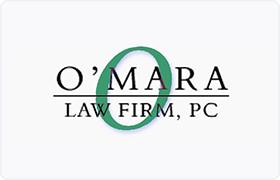Sparks Divorce & Family Law Lawyer, Nevada
Sponsored Law Firm
-
 x
x

Click For More Info:
-
The O'Mara Law Firm, P.C.
311 E. Liberty Street Reno, NV 89501» view mapDivorce & Family Law Experience, Knowledge & Integrity
For over a decade, David C. O’Mara has built and maintained an outstanding reputation by providing superior legal services to his many clients.
800-971-0140
David C. O'Mara
✓ VERIFIEDDavid C. O’Mara’s practice is concentrated in appellate advocacy, bankruptcy, family law, personal injury, civil litigation, and securities and sh... (more)
Richard A. Salvatore
✓ VERIFIEDIn 1992, I received my law degree from Thomas M. Cooley Law School in Lansing, Michigan. In 1996, I went on to receive a Masters of Law in Trial Advoc... (more)
David A. Hornbeck
✓ VERIFIEDDavid A. Hornbeck has over 35 years of experience as a lawyer. David Hornbeck is a practicing lawyer in the state of Nevada. Mr. Hornbeck received hi... (more)
Kaitlyn A Miller
FREE CONSULTATION
CONTACT David O'Mara Reno, NV
David O'Mara Reno, NV Practice AreasExpertise
Practice AreasExpertise



